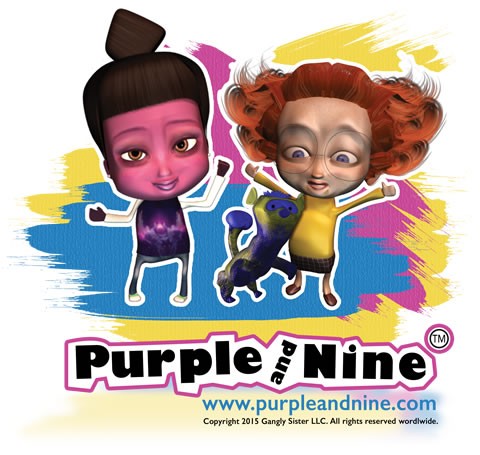
With so much action in high-tech in the Denver and Boulder areas, we wanted to take a look at how we can be more inclusive. Why aren’t there more women and minorities in the tech world? Gangly Sister, founded by parents who are also tech entrepreneurs, took a look at just that problem.
“For us, it starts very early – with our images of who we can be when we grow up,” said founder Rebecca Rachmany. “I strongly believe that we can overcome any obstacle, but first we have to set a goal. In an environment where girls are admired for their looks and parenting skills, it’s no wonder they don’t focus on tech entrepreneurs.”
Gangly Sister recently released a comic for girls in STEM, targeted for children aged 8-12. The characters, Purple and Nine, use technology to solve everyday problems, like a friend’s falling asleep in school. They are also globally aware, helping friends who live in the rainforest to charge their phone using kinetic energy. While the girls are innovative and resourceful, the comic book also emphasizes that it takes persistence to reach a solution.
“As an entrepreneur or scientist, you need to be prepared for failure. Anyone who is innovative experiences a tremendous number of false starts, mistakes, and wrong assumptions. In school, we teach children that it’s important to get the right answer, but in innovation, it’s exactly the opposite. The more you fail, the closer you get to your goal,” says Rachmany.
In the discussion of getting more women in tech, “the pipeleine problem” has often been cited. This refers to the lack of women pursuing technology careers. Local organization such as Girls Exploring Science, Technology, Engineering and Math, and the Colorado Collective for Girls in STEM have been addressing this issue, but Gangly Sister is one of the first companies providing an alternative to mass media targeted at tween girls.
Local tech leaders have taken note. Brad Feld, a managing director at Foundry Group in Boulder, Colorado has served as chairperson of the National Center for Women & Information Technology and been involved in the organization for years.
Will a comic book really change the future of technology? The company also has apps and videos planned for the next stages. For now, the founders say it’s important for parents to choose the kinds of media that will open opportunities for their children. “It makes all the difference in the world for a child to see a character they want to emulate. We’ve created characters that will encourage girls and boys to love science and technology. That’s our small contribution to changing the world.”
